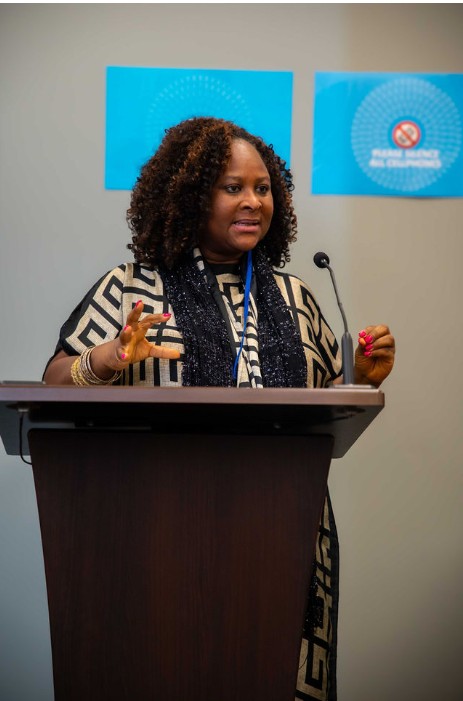Events
Opinion From Fire to Function: How African Innovators Are Turning AI Into the New Language of Global Development
By Chaste Inegbedion, Head of Happiness, ConcordeApp and Head of Failure & Social Experiments, Semaform Foundation
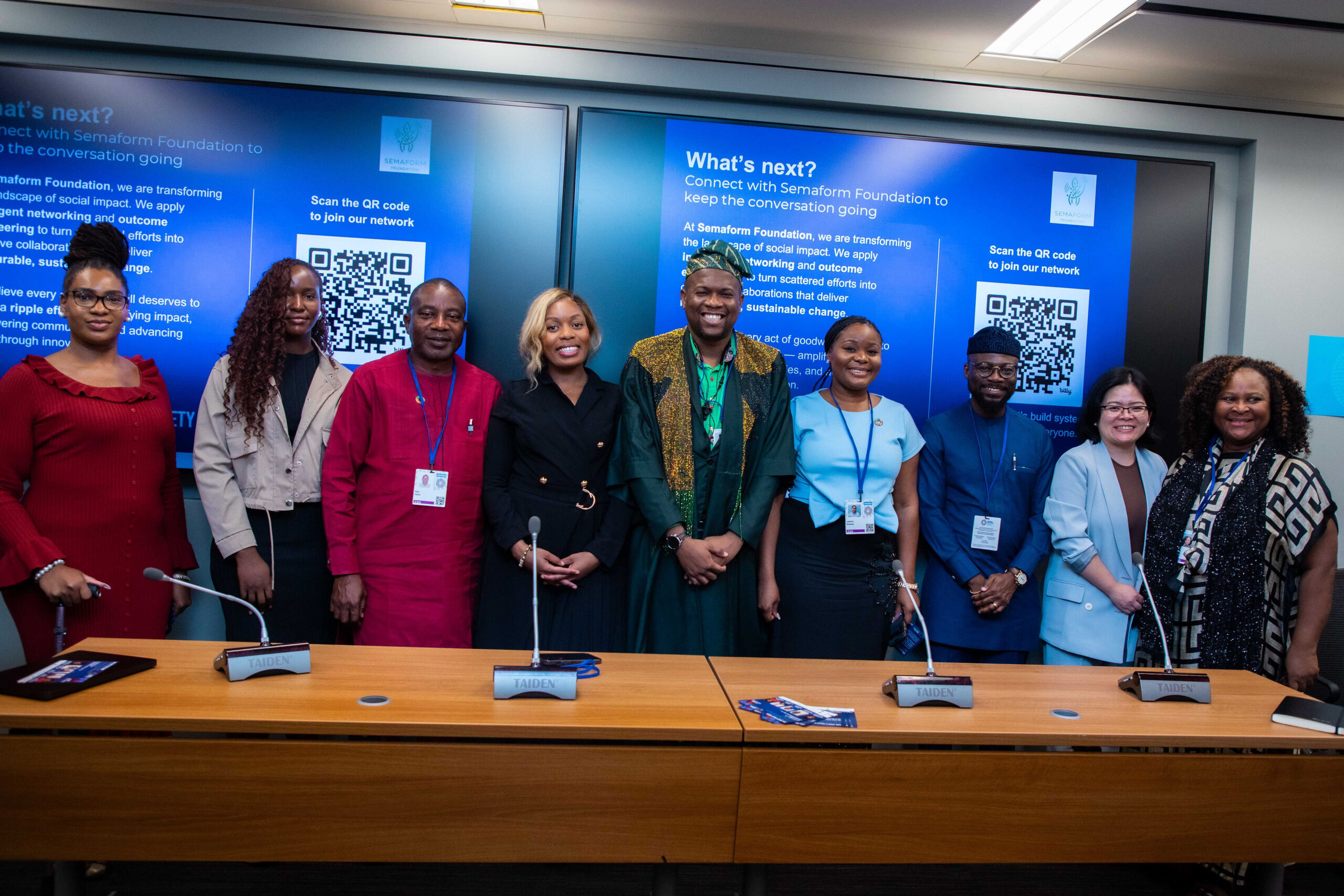
Speakers Headline
We’ve spent decades writing frameworks. But frameworks without function are just furniture for bureaucracy.
That realization hit me somewhere between two cities, New York and Washington: two events that couldn’t have been more different, yet told the same story.
In New York, at The American Exchange: Fire Festival on the sidelines of the 80th Anniversary of the United Nations General Assembly (UNGA), culture and capital collided under the bright lights of possibility.
Weeks later in Washington, during the World Bank and International Monetary Fund annual meetings, we convened the Engineering Redemptive Impact session at the World Bank Civil Society Policy Forum (CSPF): a stage where empathy met engineering.
Two rooms. Two languages. One truth:
Africa isn’t waiting to join the future, it’s building it.
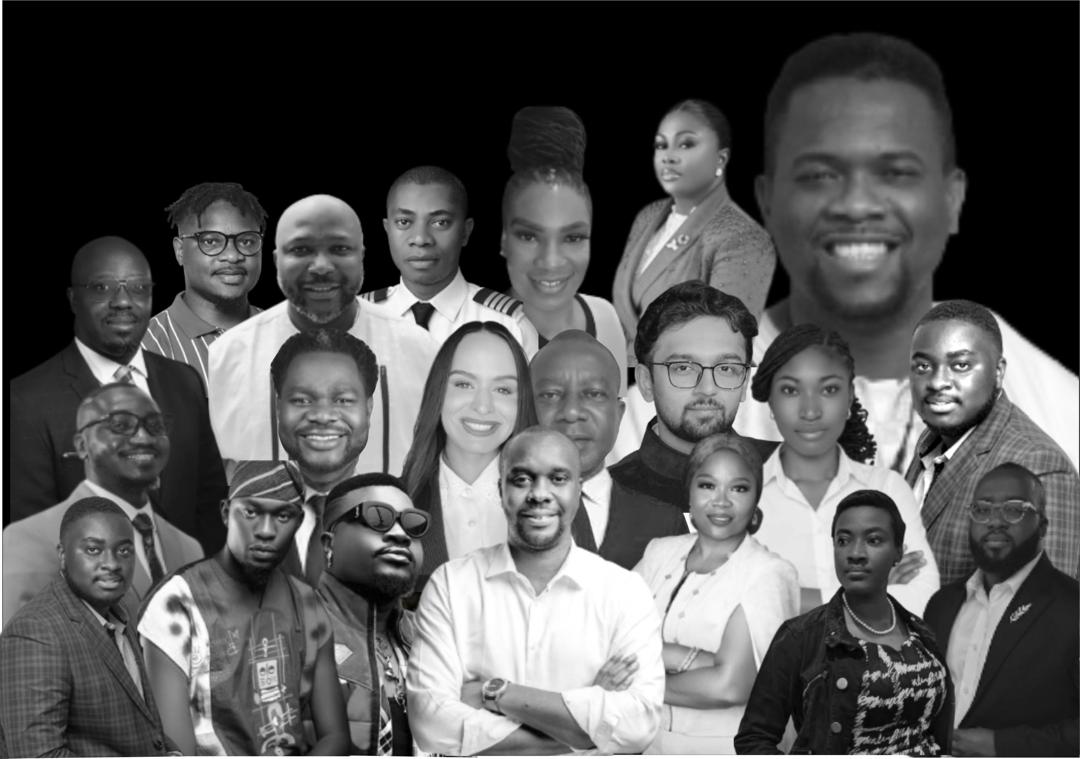
Part I: The American Exchange: Fire Festival — Where Culture Became Capital
If you’ve ever wanted to see what the future of inclusive innovation looks like, you should’ve been there. The American Exchange: Fire Festival wasn’t a panel, it was a pulse.
Held virtually and in-person across New York City, the event was co-produced by Semaform Foundation, ConcordeApp, and Cliqk, the world’s first AI Talent Agency. It united leaders from technology, banking, arts, and activism to explore how artificial intelligence could turn creativity into measurable impact.
Faith Kaminus, CMO of ConcordeApp, opened with the line that set the tone for the weekend:
“Influence without integrity is vanity. We’re not here to trend, we’re here to transform.”
Annalena Baerbock, President-elect of the UN General Assembly, appeared via video, reminding attendees that the next chapter of global cooperation must belong to “builders, not just believers.”
That theme carried through the keynote by Dr. Temitope Iluyemi, Senior Director for Emerging Markets at a Fortune 500 company, who spoke about Africa’s untapped potential:
“Africa doesn’t need aid; it needs alignment. Governance and integration are the foundation of innovation.”
The conversation deepened under Dr. Letisha A. Malcolm, President of The Collaborative, who moderated “The Human + AI Equation for Growth.” She made it clear that the future of development isn’t about machines replacing people, it’s about machines reflecting them:
“AI should not replace human compassion, it should scale it.”
Omotola Fawunmi, Founder of The Rebirth Hub, added:
“AI should not replace the human spirit; it should amplify it. Every innovation starts with empathy.”
Ibrahim Ahmed, Outreach Director for the Organization for Advancement of Nigeria, and Pamilerin Adegoke, Founder of Kamili Capital, both underlined the role of AI in bridging employment gaps and redefining digital entrepreneurship in Africa.
Then came the money talk.
Alexa Baranov, Strategic Business Relationship Manager at JPMorgan Chase, delivered one of the most memorable lines of the festival:
“We don’t just bank communities, we build them. The next generation of capital will be defined by inclusion.”
Bobola Odebiyi of Crosskudi moderated the Power Panel featuring Richard Ojuri of M&T Bank and Mubarak Olalekan Bakare of Bilarteral, where they discussed “influence as currency” and how financial systems must catch up to social innovation.
Rohan Gurram, CEO of Cliqk, and I later unveiled how ConcordeApp’s AI Event & Revenue Engine and Cliqk’s Creator Network were designed to track human capital as a tangible asset.
“We’re turning chaos into clarity,” Gurram said. “Every handshake, every story, every introduction should be measurable.”
The festival’s cultural crescendo came during “Ignite the Culture,” hosted by Elijah Affi, creator of the Venture Valley Podcast.
Panellists included:
- Juwon Olorunnipa, Special Adviser on Arts and Culture to the Governor of Kogi State,
- Captain Aliyu Ahmad Yakubu, Founder of Pyatic Group Limited, and
- Gbenga Akingbulere, Staff Software Engineer at Palo Alto Networks,
alongside musician and cultural advocate Jumabee.
Olorunnipa said it best:
“Culture is infrastructure. Without it, capital has no context.”
Akingbulere added:
“Innovation without humanity is ego. The real disruption is empathy.”
Captain Yakubu closed with the pilot’s precision:
“Every turbulence has a lesson. If we can fly through storms, we can fly nations through change.”
Finally, Dr. Murtala Adogi Mohammed, Executive Director of System Strategy & Policy Lab (SSPL), moderated “AI and Grand Challenges,” joined by Aniedi Udo-Obong of Google, Ebaide Omiunu of The Ebaidebheki Initiative, and Prince Ero Ibhafidon of the Waterlight Save Initiative, exploring how AI could address sustainability, water, and climate resilience.
“AI works best when embedded in local structures, not imposed from outside,” Omiunu warned.
“Tech without empathy will fail,” added Ibhafidon. “AI must help us serve the most vulnerable.”
Rafiu Akinpelu Olaore of YEDIS and Emenyo Segbafia of Chenoa Fund rounded out the event with actionable insights on financing innovation through structured public-private partnerships.
As Faith Kaminus said in her closing remarks:
“This isn’t a conference, it’s a code rewrite. We’re redefining how value flows, how inclusion scales, and how purpose pays.”
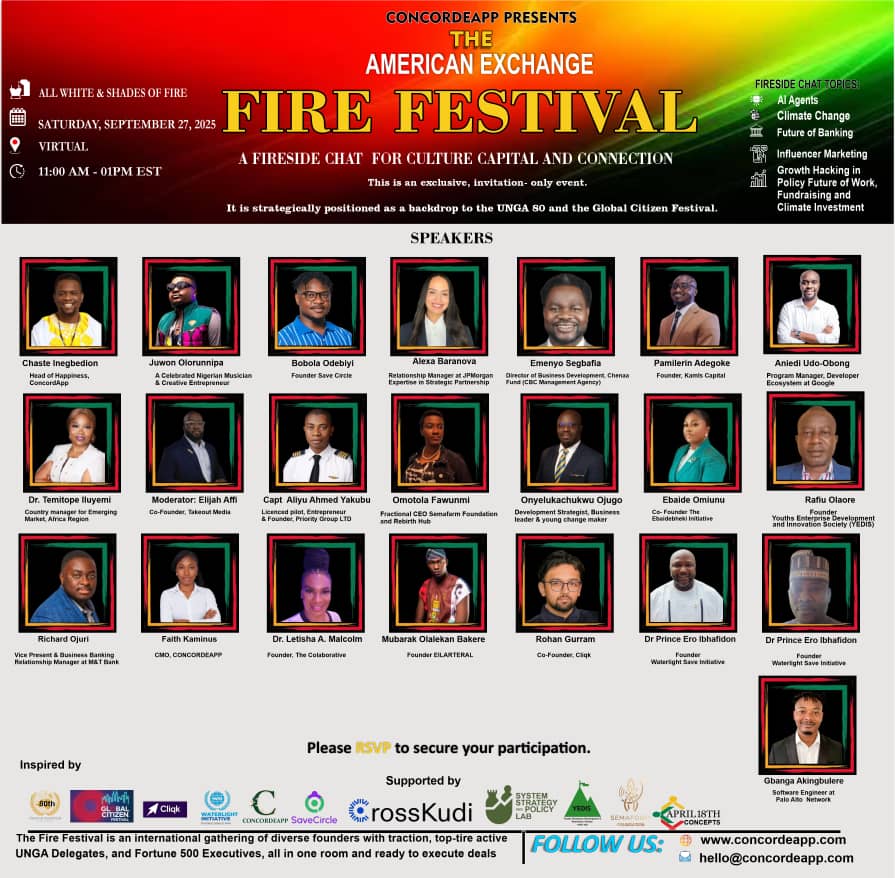
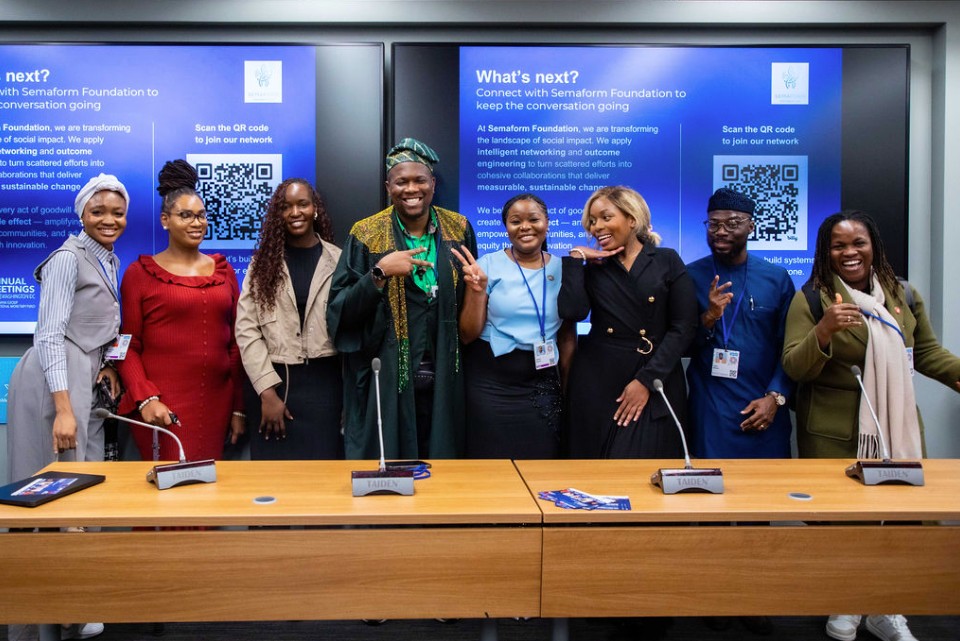 Part II: The World Bank Civil Society Policy Forum: Where Empathy Became Engineering
Part II: The World Bank Civil Society Policy Forum: Where Empathy Became Engineering
Just weeks later, I found myself in Washington, D.C., in a very different room, yet the same conversation.
At the Civil Society Policy Forum (CSPF) held during the 2025 World Bank–IMF Annual Meetings, Semaform Foundation co-hosted the session “Engineering Redemptive Impact: AI-Driven Solutions for Civil Society’s Grand Challenges.”
Our coalition included The Collaborative for Leadership, Policy, Advocacy & Global Exchange, Youths Enterprise Development & Innovation Society (YEDIS), and ConcordeApp.
The premise was clear: civil society doesn’t need more projects, it needs products that scale.
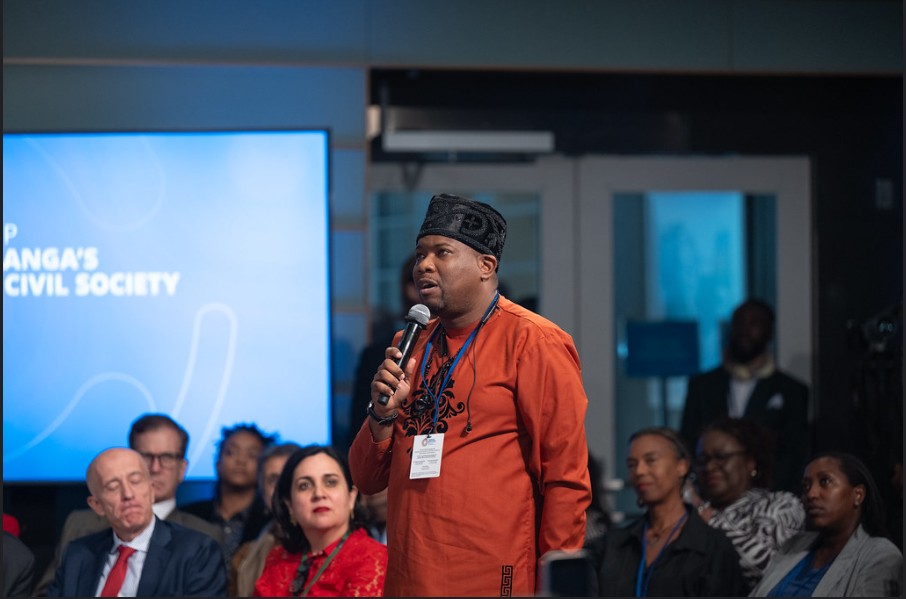
In fact, I posed this directly to World Bank Group President Ajay Banga during his Third Town Hall with Civil Society, which also featured Anna Bjerde (Managing Director of Operations), Makhtar Diop (IFC Managing Director), Axel van Trotsenburg (Senior Managing Director), and Hiroshi Matano (MIGA EVP).
My question was simple:
“If AI can transform how the private sector predicts markets, how can we leverage AI Agents and ethical automation to predict and prevent development friction, so that funding moves from projects to products, from paperwork to progress?”
Banga’s response was diplomatic yet optimistic:
“You’re absolutely right—AI can be transformative if used responsibly. The challenge is ensuring access and alignment so that innovation truly serves people.”
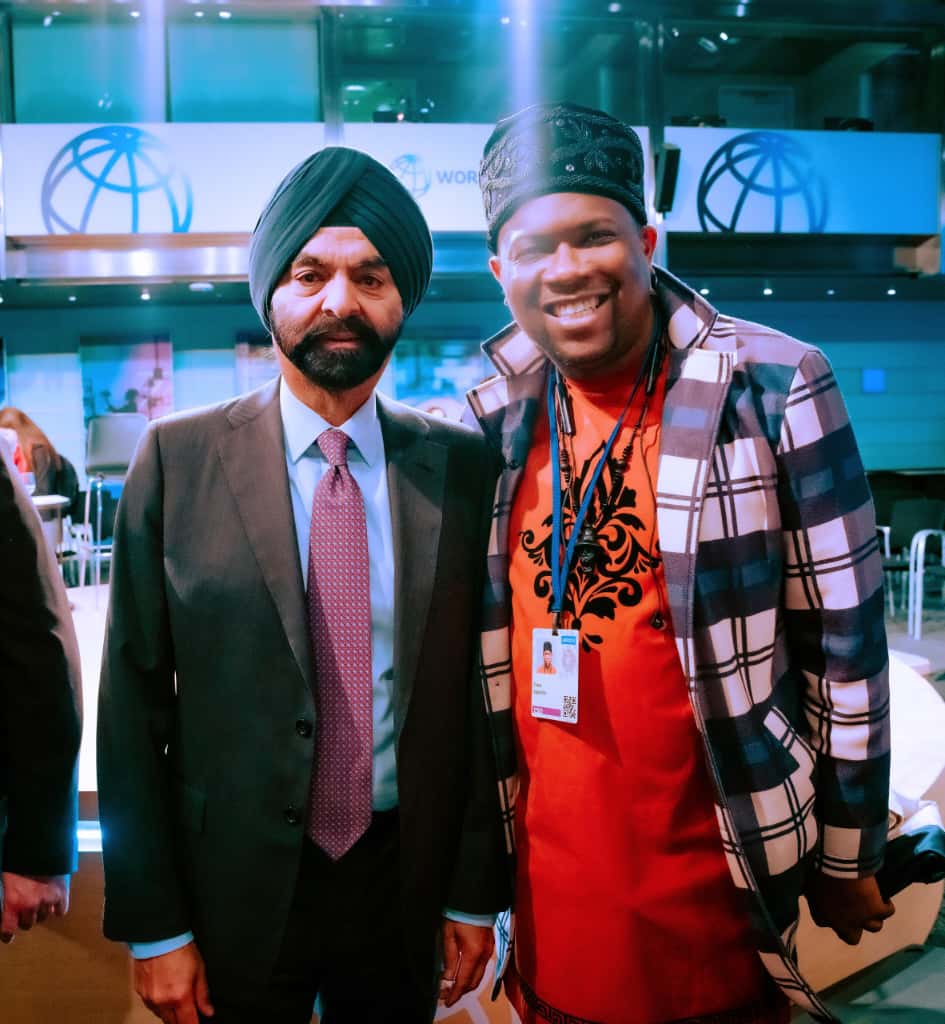 The panel lineup—Dr. Letisha A. Malcolm (The Collaborative), Lyzianah Emakoua (Centre for Community Impact & Sustainability), Richard Ojuri (M&T Bank), Kome Igbogidi (ServiceNow), and Winnie Mangeni (PAWA AI)—took that challenge head-on.
The panel lineup—Dr. Letisha A. Malcolm (The Collaborative), Lyzianah Emakoua (Centre for Community Impact & Sustainability), Richard Ojuri (M&T Bank), Kome Igbogidi (ServiceNow), and Winnie Mangeni (PAWA AI)—took that challenge head-on.
Dr. Malcolm said:
“Civil society can’t fight 21st-century problems with 20th-century tools. AI allows us to systematize empathy—to turn compassion into a process that scales.”
Emakoua added:
“Communities can’t wait for perfect frameworks. We must build AI that reflects their realities, not the theories written about them.”
Winnie Mangeni demonstrated the PAWA AI Agent, a platform automating proposal writing and financial optimization for nonprofits.
“AI can make fundraising less about chasing donors and more about designing value,” she said. “And with initiatives like the OpenAI People-First Fund, nonprofits can finally access $50 million to bring that vision to life.”
Ojuri reminded us that finance follows trust:
“Financial inclusion isn’t about access, it’s about accountability. AI builds the proof that civil society needs to unlock capital.”
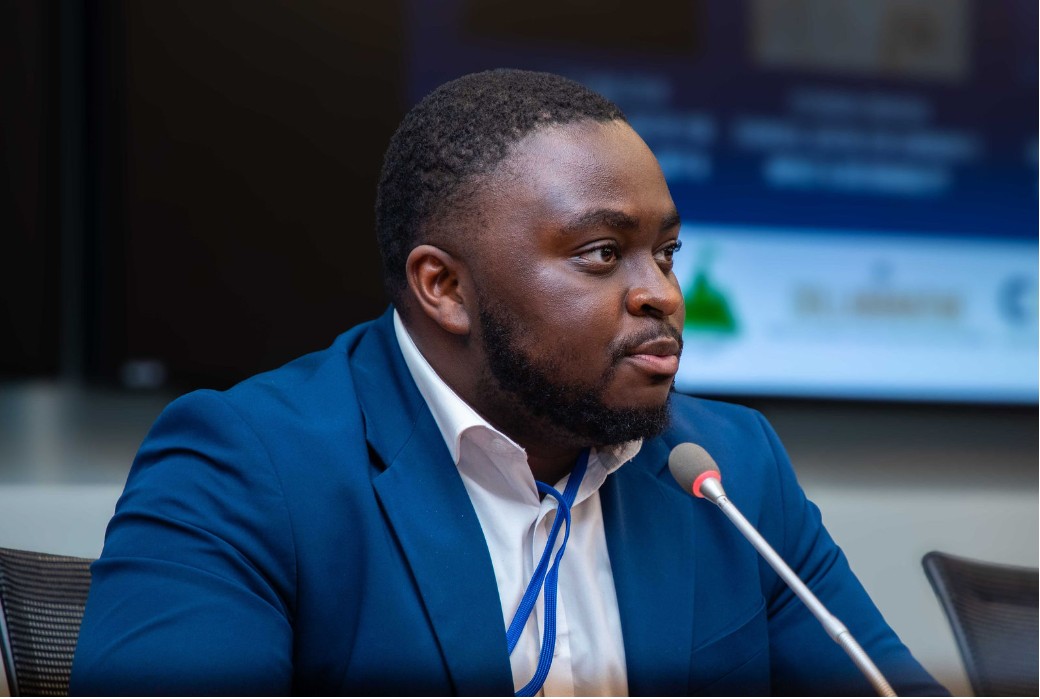
Richard Ojuri, VP M&T Bank
Rafiu Akinpelu Olaore of YEDIS connected it back to Africa’s demographic engine:
“AI isn’t just youth tech, it is development infrastructure.”
Representing the World Bank, Lou Li, External Affairs Officer, acknowledged the growing relevance of ethical AI:
“AI has the potential to accelerate development outcomes if applied responsibly. We look forward to partnering with civil society to scale what works.”
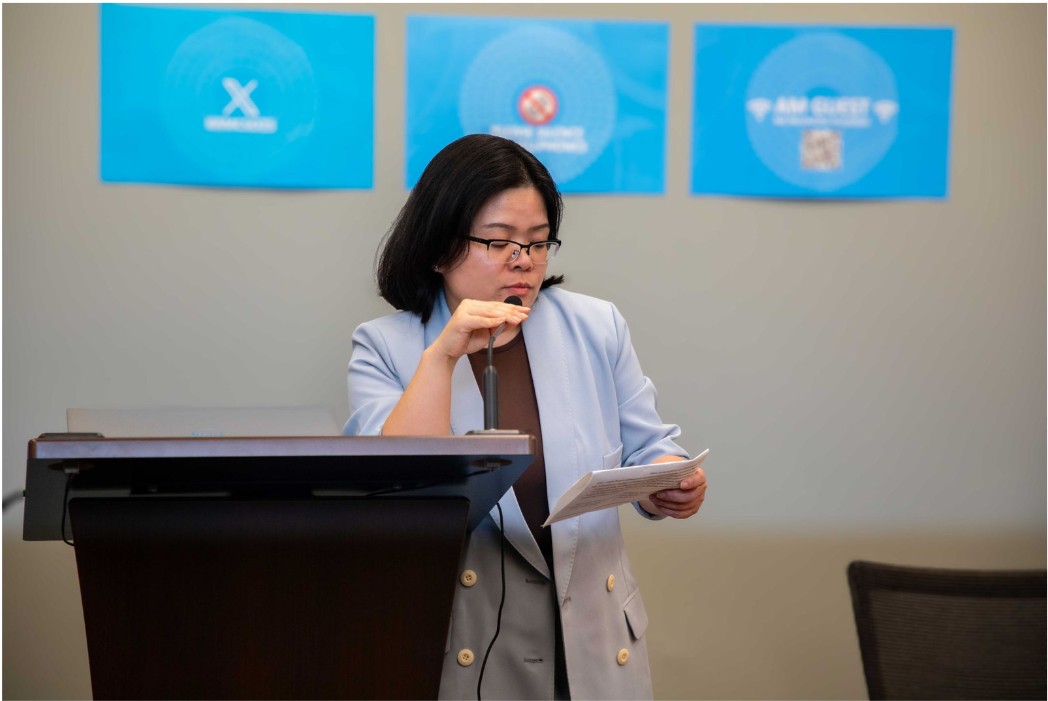
Lou Li, External Affairs Officer, World Bank
Audience members added depth to the discussion.
Oluseun Ojo, social entrepreneur and member of the American College of Healthcare Executives, shared a practical recommendation:
“Nonprofits don’t fail for lack of purpose, they fail for lack of tools. Platforms like TechSoup can close that gap.”
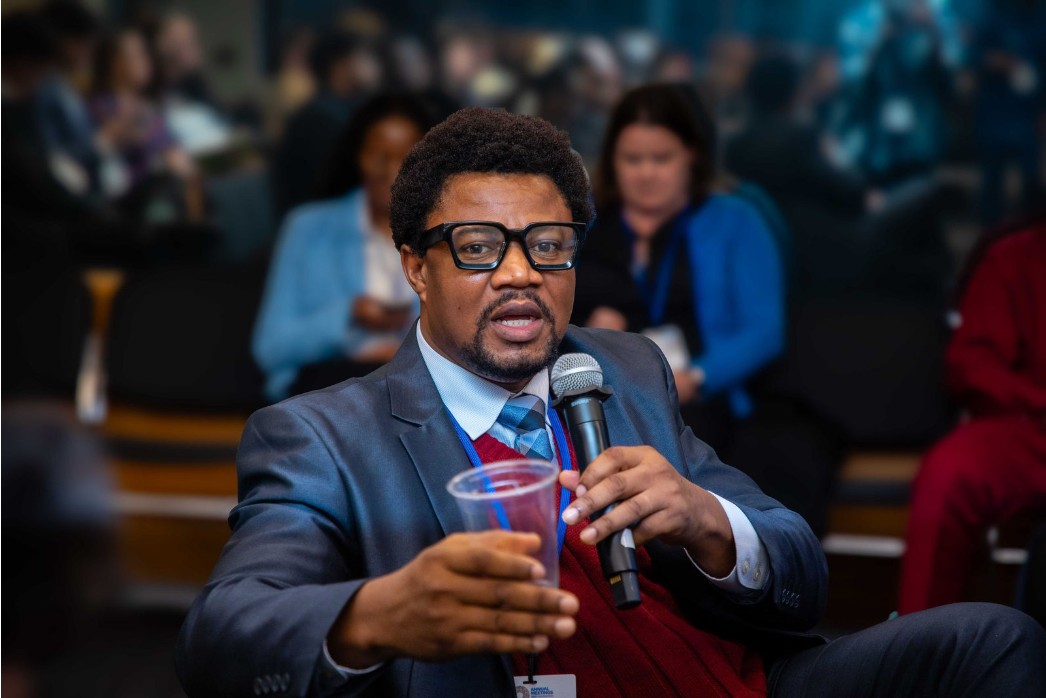
Oluseun Ojo, American College of Healthcare Executives
Hawa Taylor Kamara Diallo, Retired Chief of Civil Society at the UN Department of Global Communications and Founder of the IBTK Foundation, said:
“This was the first time AI wasn’t presented as a buzzword but as a bridge. We’re leaving with deployable tools.”
Hawa Taylor Kamara Diallo, Retired UN Official/ Founder IBTK Foundation
And Adebusuyi Olumadewa, Founder of DoTheDream Youth Development Initiative, concluded:
“Technology is only as powerful as the people it empowers.”
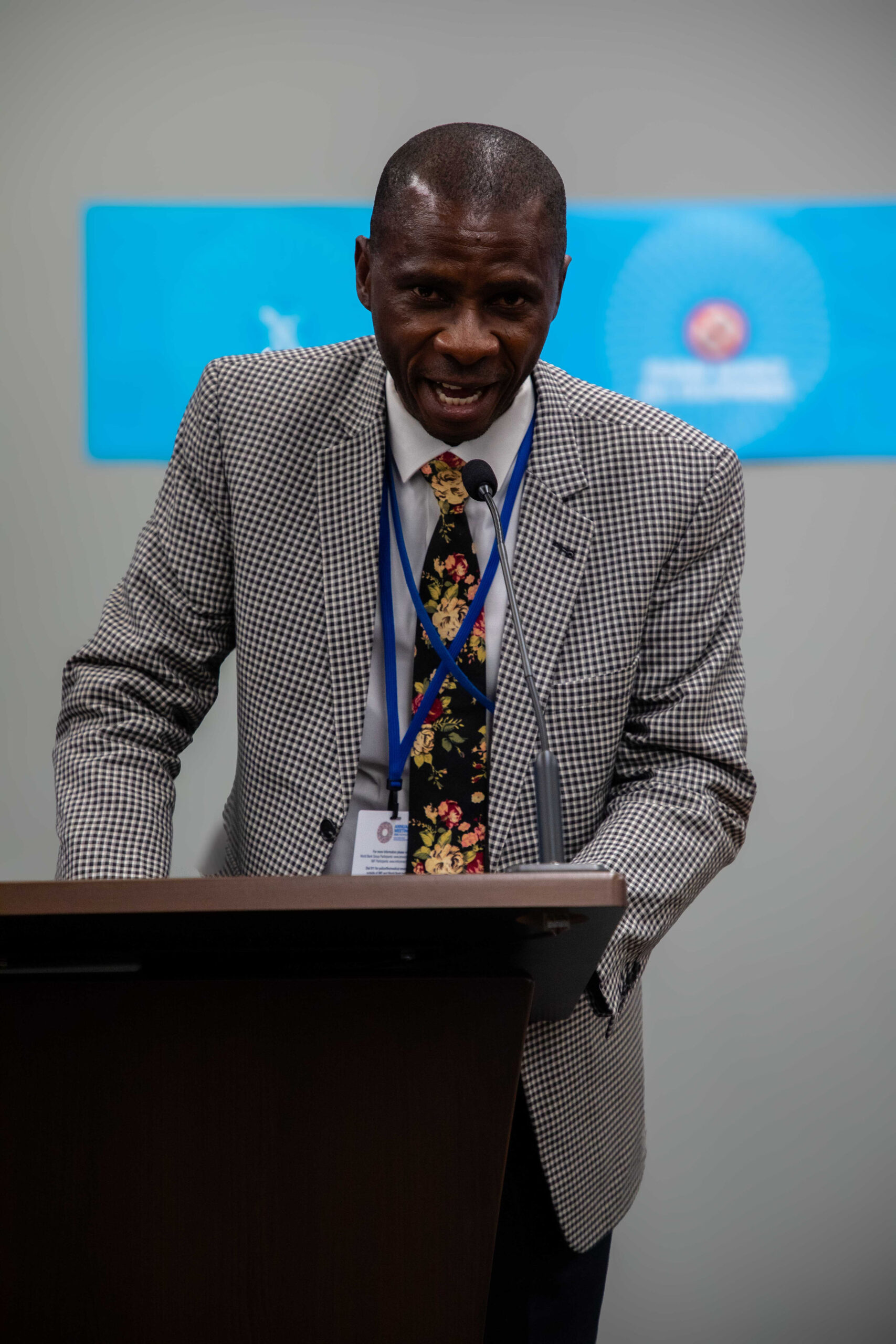
Adebusuyi Olumadewa, Founder DoTheDream YDI
Session producer James Ladi Williams, President of Akadá LLC, is now coordinating a Communiqué to the World Bank and IMF to institutionalize these insights.
“We’ve proven that collaboration works,” he said. “Now it’s time to codify it.”
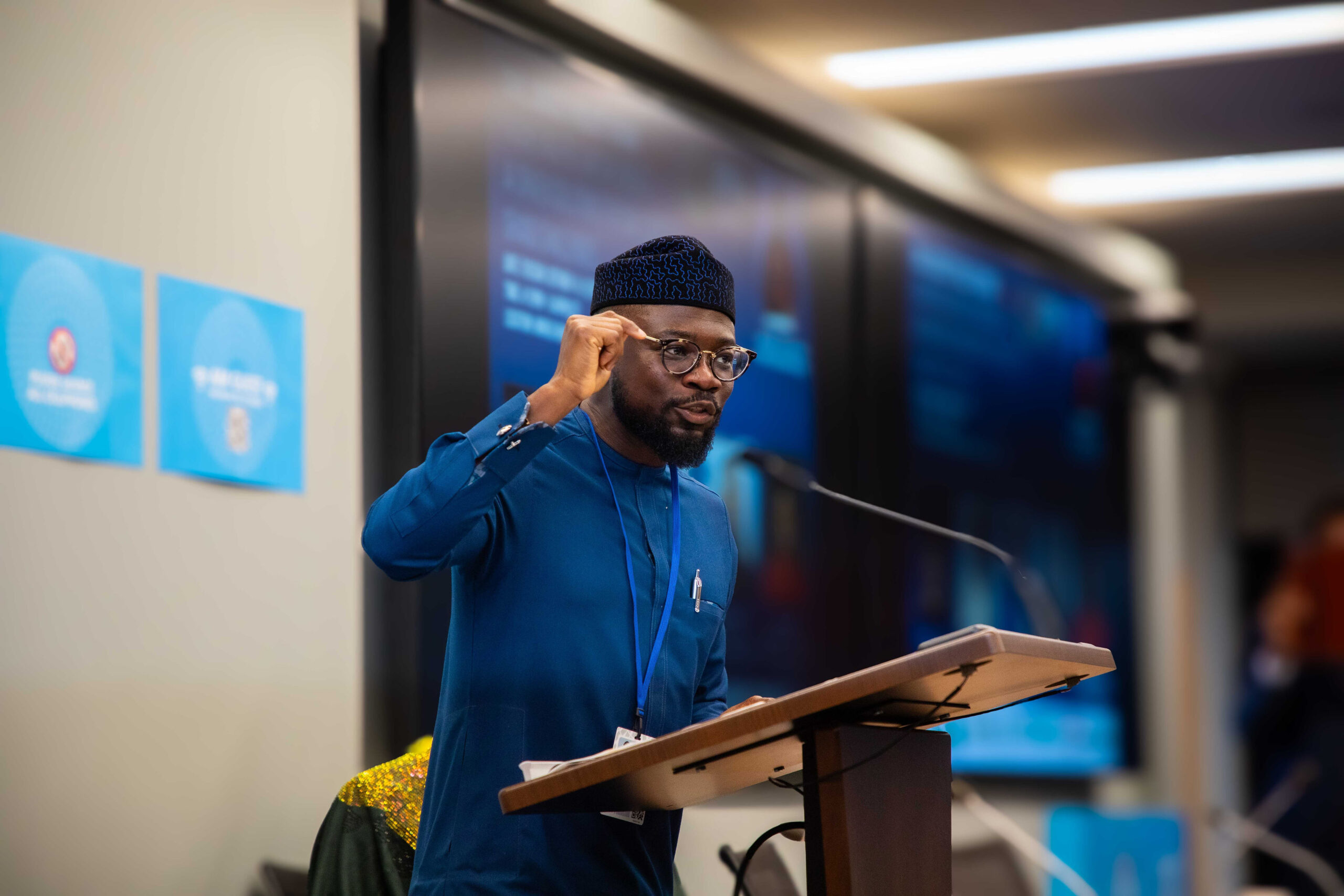
James Ladi Williams, formerly McKinsey and the New York Mayor’s Office
From Fire to Function
From New York’s creative chaos to Washington’s policy corridors, one message rang clear:
AI is not the future of development, it’s the format of it.
As I said in both rooms:
“The greatest barrier to achieving the SDGs isn’t funding—it’s friction. The systems are there. We just need to make them work.”
Africa’s innovators aren’t waiting to join global progress; they’re building the blueprint for it.
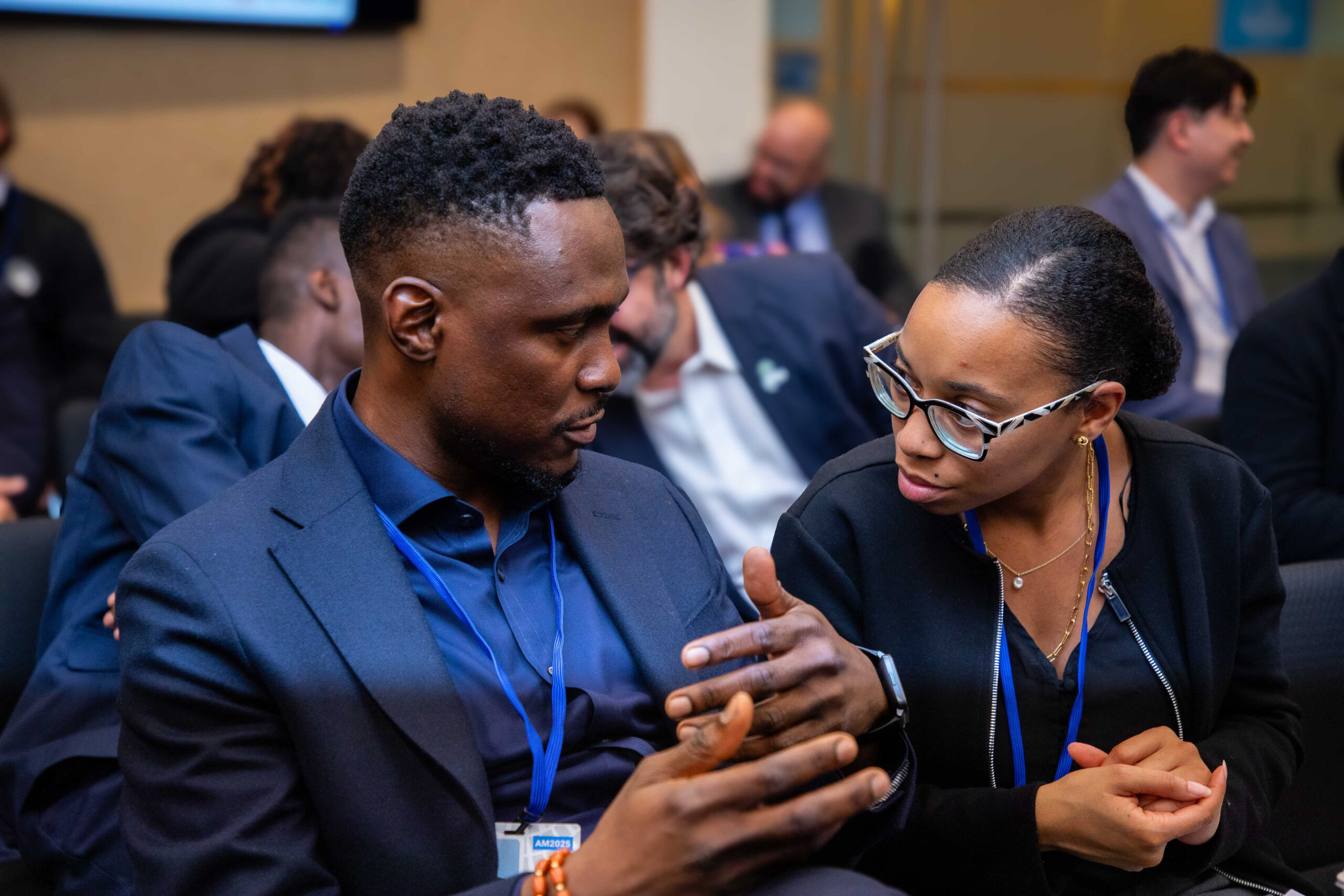
Eyitayo Ogunmola Tech Entrepreneur, Community Mobilizer and AI Investor
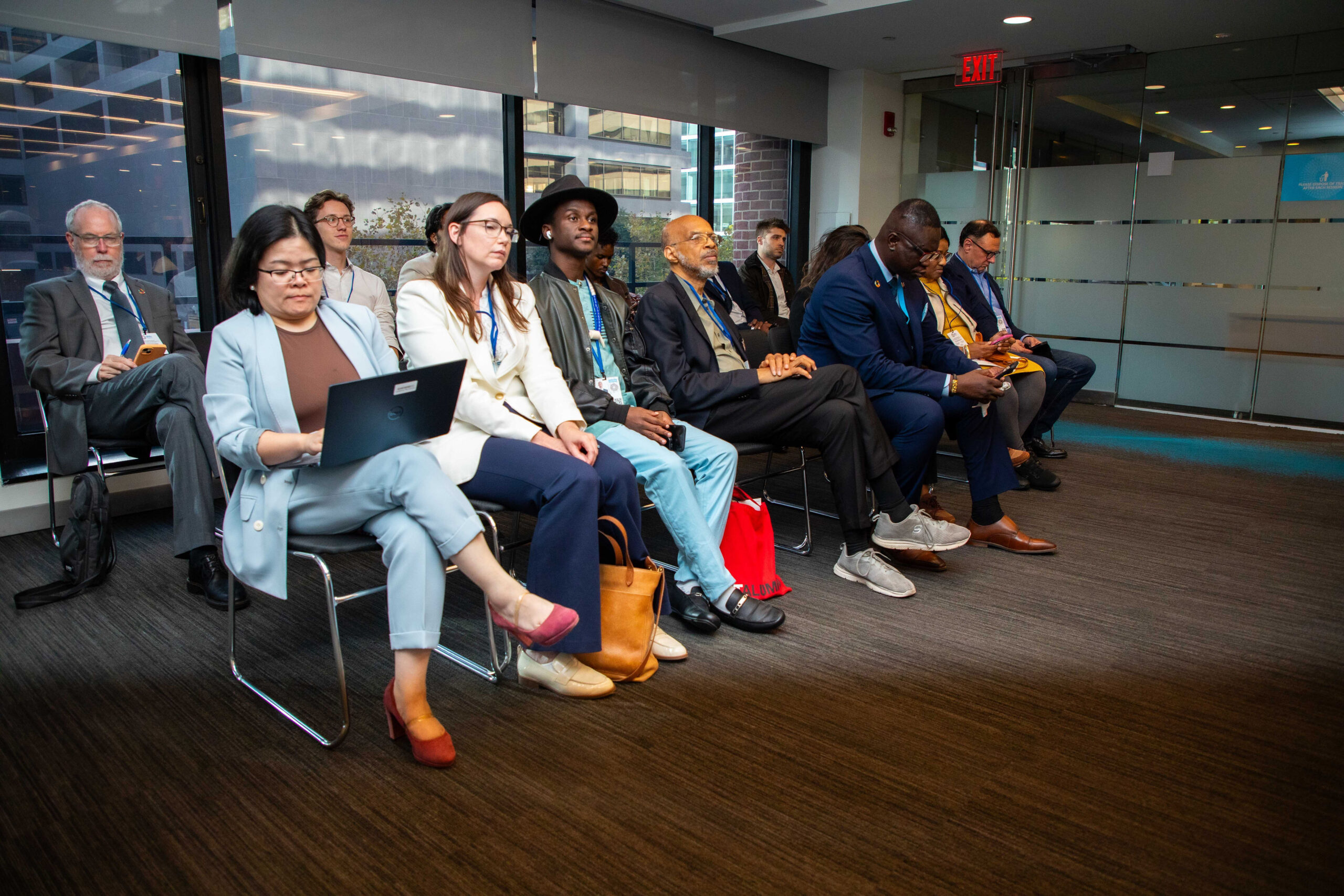
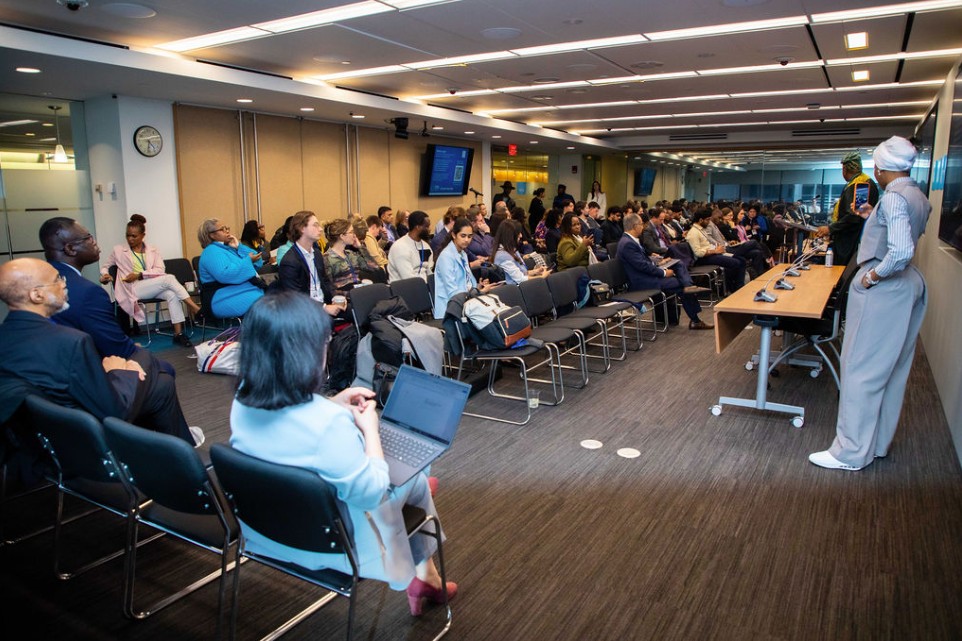
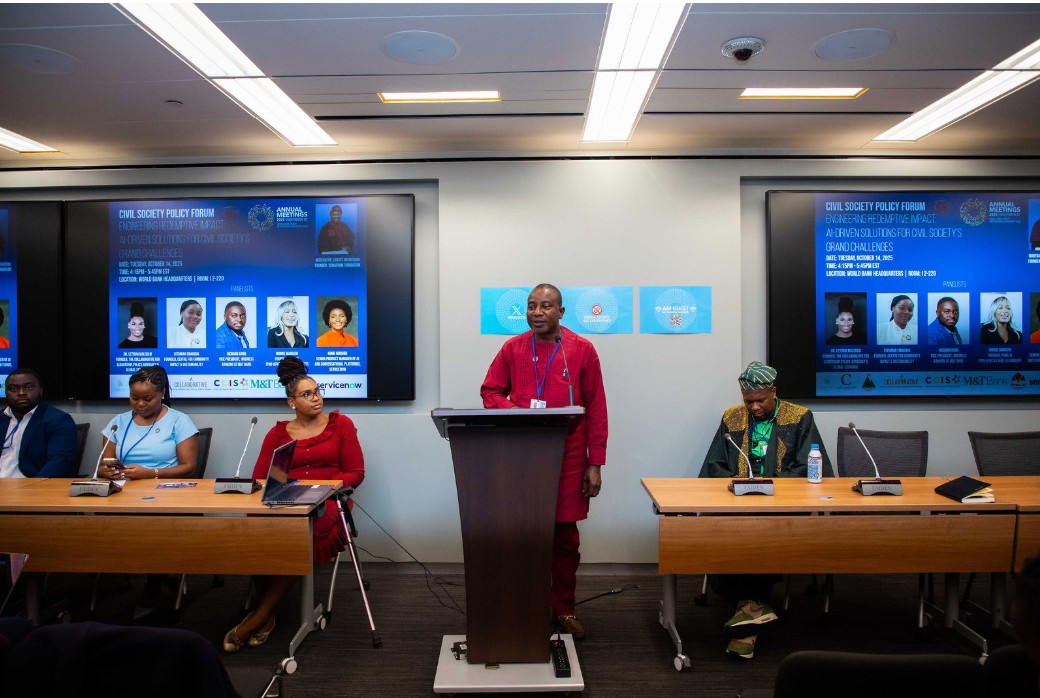
Rafiu Olaore, Founder Youths Enterprise Development & Innovation Society
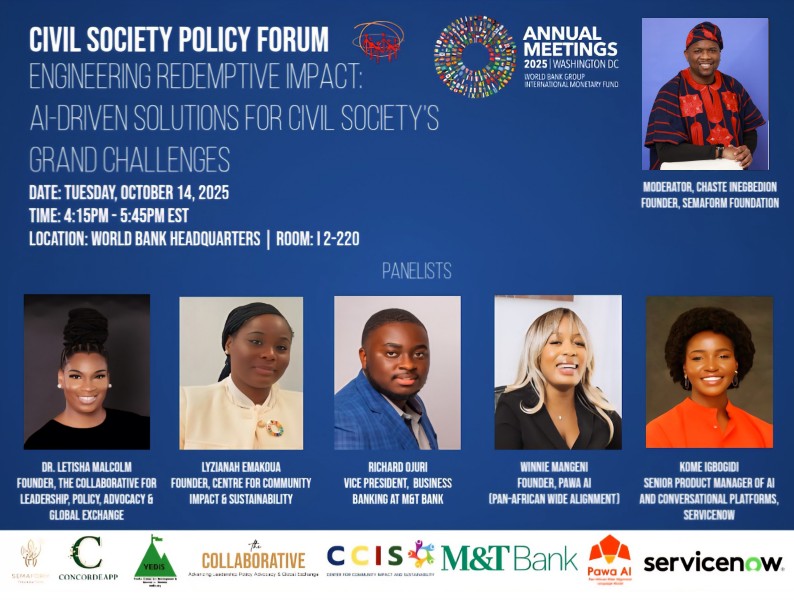
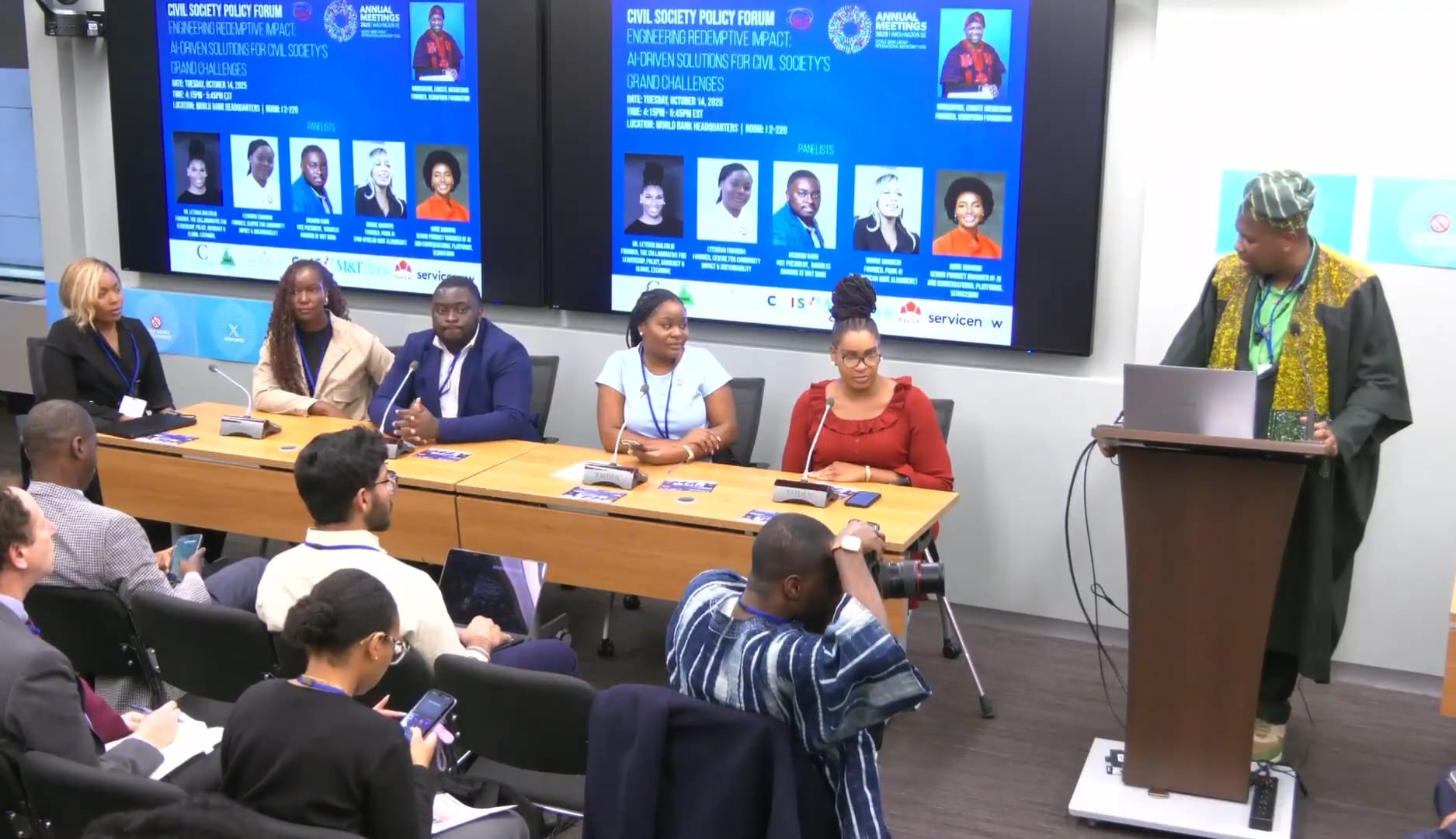
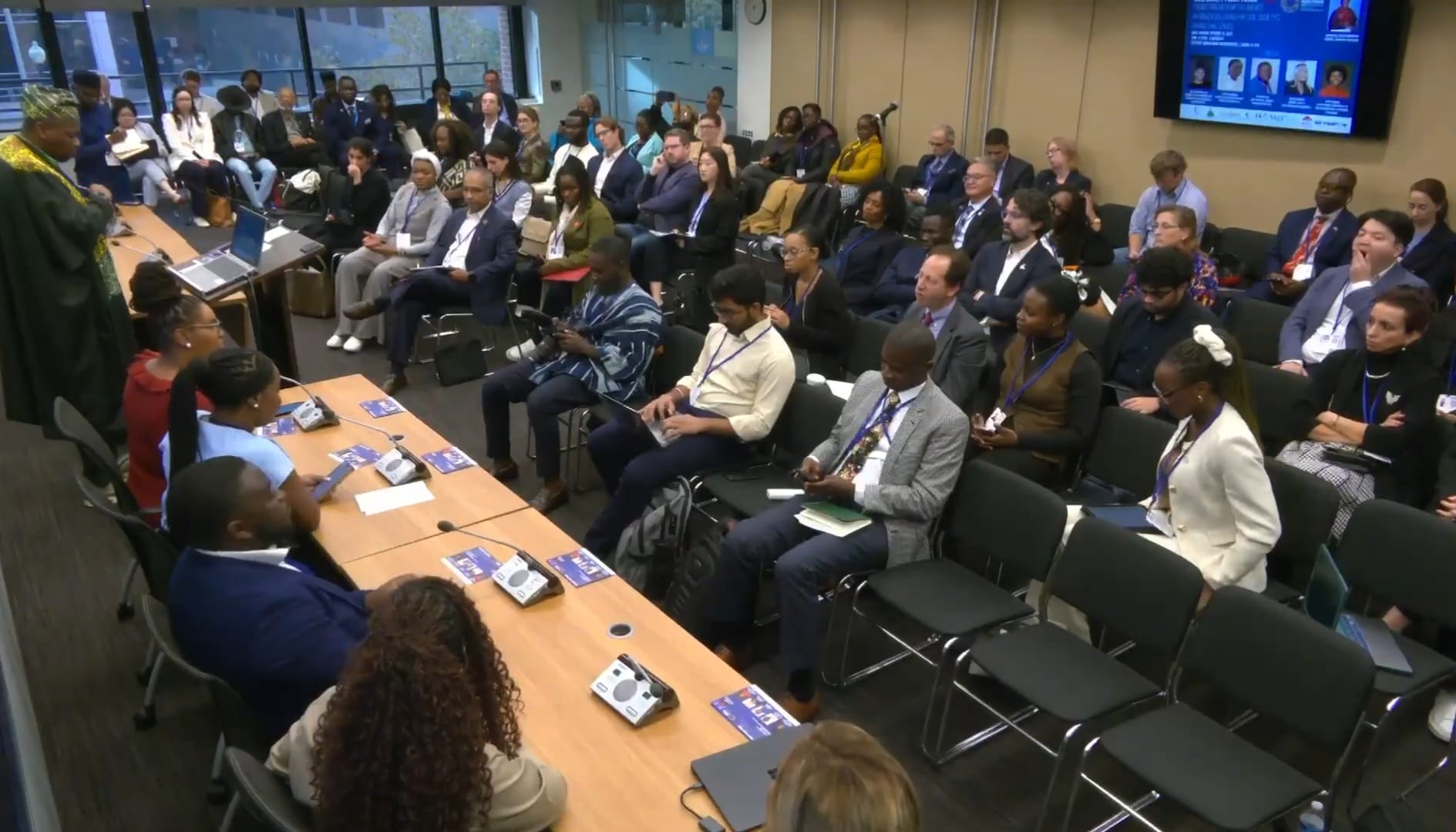
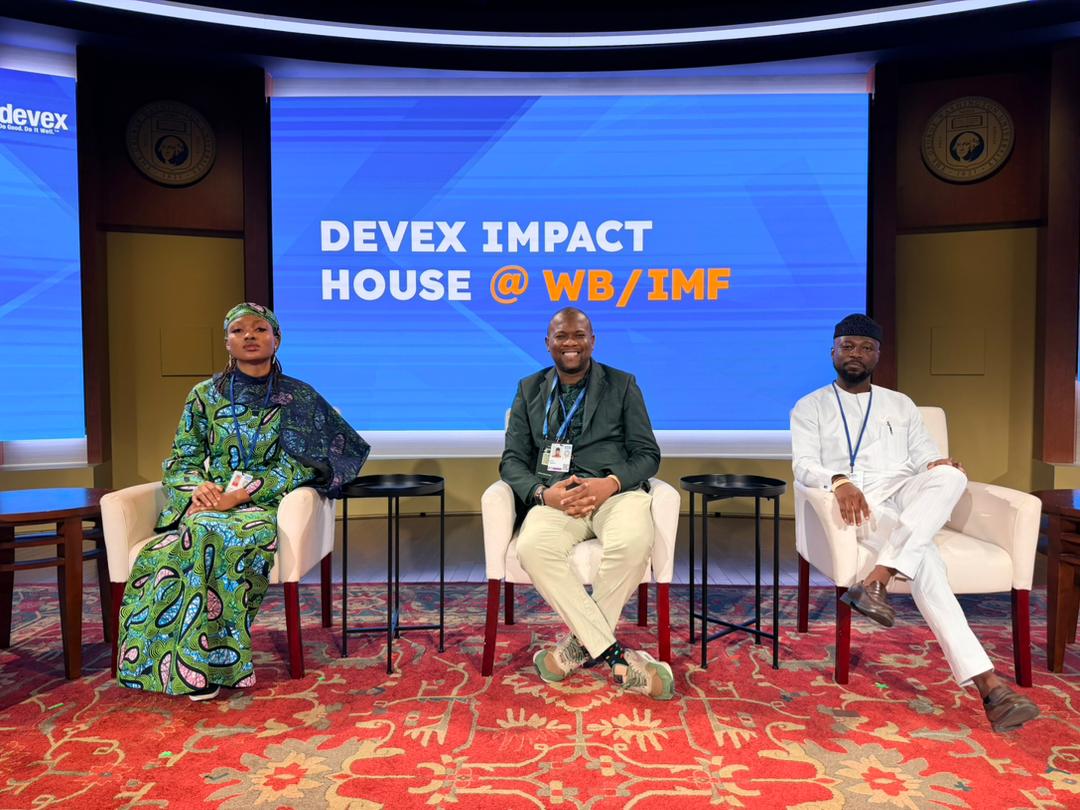
Watch Leveraging AI-driven Event Intelligence to Navigate Uncertainty and Drive Business Growth on YouTube
Full Livestream of the World Bank Event can be watched here.
Sponsored Content

